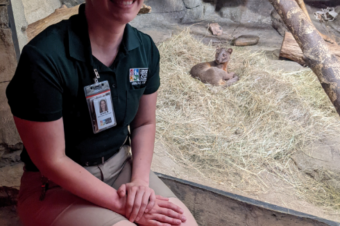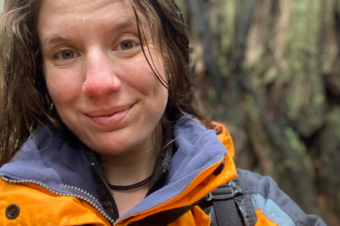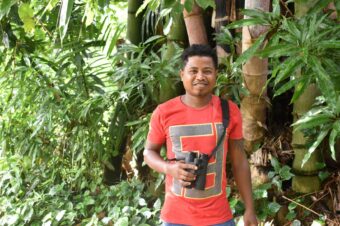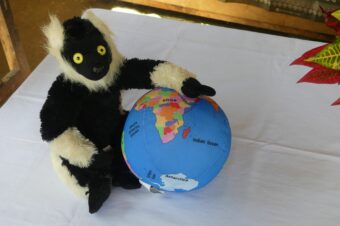Blog from 2011-12 MBP Prolemur simus monitoring team volunteer, Elle
Working in the field following lemurs day in and day out, I have definitely learnt the hard way on some of the things you should and should not do! This has allowed me to devise a helpful Do’s and Don’ts guide, which is as follows:
Do’s and Don’ts
- Always trust your guide.
- If he warns you to go slow, take his word or you will often find yourself descending on your bottom
- Never take the short-cut.
- Yes, that short, dense distance between you and the lemur is always alluring, and yes, you are invincible. But, it is always faster to head around rather than through, or you may find yourself in a spider web of vines.
- Familiarize yourself with the broken English and accents of your guides.
- Or you may find yourself shocked to learn you are moving towards the ‘Slut’ on the hill and not the ‘Slope’
- Avoid settling down.
- It’s almost guaranteed that when you rest for a quick bite to eat, you will be urinated on, or your follow animal will jump out of sight.
- Ensure you always have your pocket knife handy.
- We have found peeling our lunch vegetables a difficult task without it.
- Never think it’s ok to leave your camera behind.
- I guarantee these days will be the ones with the best photo opportunities.
- Always listen to your guides weather prediction.
- Even when they say “big rain”, but you see nothing but blue skies. They are often always right.
- Never leave your field shoes outside.
- You might wake up, after an evening of torrential downpour to find your shoes pooled with water.
- Constantly be on the lookout for hornets.
- They get you when you least expect it!
- Don’t ever forget your water or insect repellent.
- Initially it might be difficult to remember, but after a few thirsty days, and swarms of mosquitoes you will never forget again.
- Always make sure your tent is reinforced during storms.
- Or it might surprise you when you wake up on a morning with the fly no longer on the tent.
- Never forget how fortunate you are to be in Madagascar working with one of the 25 most endangered primates in the world, and with an NGO that is doing all they can to make a long term difference.










Leave a Reply